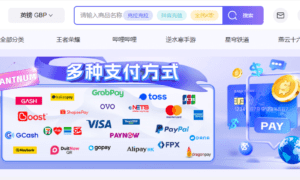In the era of remote work and the global gig economy, fast international payments are no longer just a luxury—they’re a necessity. Freelancers and working remotely professionals usually need fast and credible payment to keep cash flowing, settle their debts, or invest back into the work. International payment is, however, still facing the challenge of delays, charges, and currency exchange. In this blog, we will discuss how, in 2025, freelancers and remote workers will be able to receive global payments quickly, safely, and at low costs.
Why Speed Matters for Freelancers
To a great number of freelancers, remuneration is not only about money, it is about survival and sustainability. Prolonged delays may mess up budgets, particularly when it comes to those who need to use prompt income to pay their rent, subscriptions, or even personal expenditures. Also, late payments can hamper customer relationships, particularly when one is dealing with a time zone or an urgent shipment.
Timely payments in seconds or in a few hours have already become a competitive advantage that allows remote professionals to be financially stable and concentrate on their work.
Top Platforms for Fast Freelancer Payments
By 2025, a number of sites will have the ability to make international payments to freelancers fast and seamlessly:
- Wise: Provides local bank information in various other currencies and almost instant transfers to freelancer accounts. A lot of clients are using Wise to make payments to their freelancers in their local currency within hours.
- Payoneer: Payoneer is famous among freelancers who work in such markets as Upwork and Fiverr, allowing their payments to be made in large volumes and providing a quick transfer to a local bank.
- Revolut Business: When working freelancers with Revolut can be paid in different currencies and withdraw or spend immediately with virtual or physical cards.
- Deel & Remote: These platforms are built to focus on compliance-first hiring and payroll, but provide quick contractor payments through a variety of methods, such as crypto and bank transfer.
- Crypto wallets (e.g., USDC, USDT): Freelancers are also starting to receive stablecoin payments via networks such as Stellar or Ethereum that provide instant worldwide transfers at extremely low costs.
Reducing Fees While Staying Fast
Freelancers can also lose a huge amount of their money to payment processing and exchange charges. Conventional means of payment, such as wire transfer or PayPal, can be trusted, but would incur fees of 3-6 percent on their own.
So as to save money and yet maintain transfers quickly:
- Negotiate payment terms: Require customers to transact through platforms of lower FX rates or assist local currency remittances.
- Use multi-currency wallets: Keep and exchange currencies when you want to, but not when the rate goes up.
- Consider crypto payouts: To the tech-savvy freelancer, stablecoin payments are fast, independent, and have low costs.
Managing Cross-Border Taxes and Compliance
Quick payments are good–but compliance is important, also. Workers who operate as freelancers in international markets should make sure that their payment system has a way to record their paymentss to facilitate taxation procedures. Applications such as Payoneer, Deel, and Wise present end-of-year summaries, and thus, one can easily report income.
Also, remaining in compliance with local regulations implies using regulated platforms that ensure an adequate identity check and disclose the limits of transfer and reporting requirements.
Conclusion
To freelancers and remote workers in other countries, fast international payment is not merely about receiving more money in less time; it is about enabling a life of flexibility, freedom, and financial independence. Freelancers now are able to get paid in hours with the right platforms and strategies, save on fees, and handle international income with ease. Paying someone in the world in 2025 will need to feel as easy and quick as being able to pay someone just a few houses down.

































